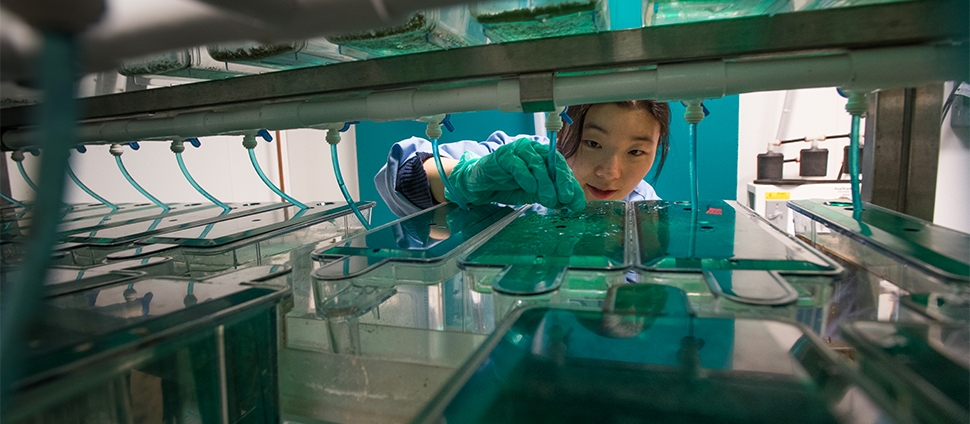Document Type
Article
Publication Date
4-1-2020
Publication Title
PLoS Neglected Tropical Diseases
Abstract
We recently developed a superhydrophobic cone-based method for the collection of mosquito excreta/feces (E/F) for the molecular xenomonitoring of vector-borne parasites show-ing higher throughput compared to the traditional approach. To test its field applicability, we used this platform to detect the presence of filarial and malaria parasites in two villages of Ghana and compared results to those for detection in mosquito carcasses and human blood. We compared the molecular detection of three parasites (Wuchereria bancrofti, Plas-modium falciparum and Mansonella perstans) in mosquito E/F, mosquito carcasses and human blood collected from the same households in two villages in the Savannah Region of the country. We successfully detected the parasite DNA in mosquito E/F from indoor resting mosquitoes, including W. bancrofti which had a very low community prevalence (2.5–3.8%). Detection in the E/F samples was concordant with detection in insect whole carcasses and human blood, and a parasite not vectored by mosquitoes was detected as well.Our approach to collect and test mosquito E/F successfully detected a variety of parasites at varying prevalence in the human population under field conditions, including a pathogen (M. perstans) which is not transmitted by mosquitoes. The method shows promise for further development and applicability for the early detection and surveillance of a variety of pathogens carried in human blood.
Volume
14
Issue
4
First Page
1
Last Page
17
DOI
10.1371/journal.pntd.0008175
ISSN
19352727
Creative Commons License

This work is licensed under a Creative Commons Attribution 4.0 International License.
Rights
© 2020 Minetti et al.
Version
Version of Record
Recommended Citation
Minetti, Corrado; Pilotte, Nils; Zulch, Michael; Canelas, Tiago; Tettevi, Edward J.; Veriegh, Francis B.D.; Osei-Atweneboana, Mike Yaw; Williams, Steven A.; and Reimer, Lisa J., "Field Evaluation of DNA Detection of Human Filarial and Malaria Parasites Using Mosquito Excreta/Feces" (2020). Biological Sciences: Faculty Publications, Smith College, Northampton, MA.
https://scholarworks.smith.edu/bio_facpubs/156


